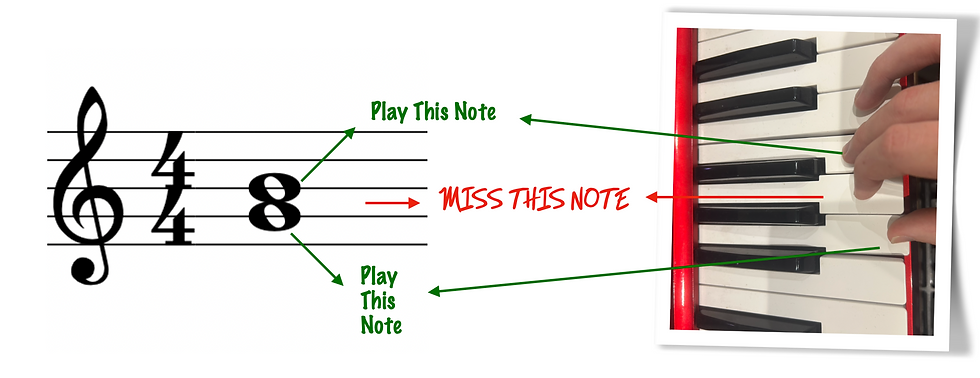The Recording Button - Your Worst Audience Member
- Jack Mitchell Smith

- Jul 14, 2023
- 4 min read

We've all been there!
Performing comes naturally to us pianists and other musicians, and sure we can play to the best of our ability to ourselves.
And we can play fantastically well when it comes to performing in front of others too (providing that we have practiced).
But then - the red light. The record button is activated, and what happens?
We go to pot!
This has been happening to me a bit this week, so I've been doing a little investigating to check where the problems may be and why they might be occurring.
Can You Actually Play the Music?
This sounds like a no brainer, but it's actually something that is true. When we perform music - whether it be to an audience or for a take - we should already have a strong enough grasp that when something in the form of obligation presses (e.g. getting a good recorded take) that we don't buckle to pressure. Our brains know what they're doing, muscle memory kicks in and overall we are confident.
But ask yourself this - would you be confident performing this piece of music to an audience?
One of the biggest reasons why we feel extra pressure performing for a recording against a live audience is that the whole take needs to be good as, if it isn't, it will be there, captured forever. A mistake in front of a live audience is forgotten in minutes - often seconds. In fact, many of them go unnoticed! Therefore, we tend to feel a little less pressure when playing for an audience.
Theoretically, this leads to an easier job performing for the audience, but quite often what our subconsciouses do is tell us that because we have the ability to take and take and take with a recording, we can just keep doing it until it is right. Therefore, if it's not quite up to scratch for a performance anyway it doesn't matter - just do it until it is right!
Not necessarily the correct approach, though.
If you wouldn't feel comfortable playing a piece of music for an audience, you probably won't do a very good job of it when you come to recording it. Certainly not the best of your standard, or at your fullest potential. Or, at the very least, without several hours of takes which is a whole other frustration in itself.
Are You Being Needlessly Picky?
Of course we want to give a perfect take when we perform, but on the basis that we seldom give perfect takes when we perform live if we're all honest, what are the odds that we will?
Refer to my slightly earlier point in which I mention that mistakes in live performance are often forgotten in minutes or even seconds (if noticed at all) and now relate that to how your performance is. If you make a mistake during a take, is it worth scrapping the take and starting again? Obviously if it affected your confidence and this made itself known going forward then that's OK, or if it was a significantly large mistake then fair enough. However, don't fall victim to giving up on otherwise decent takes.
On the flip side of this, of course, is the idea that imperfection = perfection. Of course we want our performance to be as right as possible, but the occasional dud note here or there can actually enhance a performance, serving as a reminder that - in this digital age - we are, in fact, listening to a human performing on a very real instrument.
Are You Giving Yourself Breaks?
Again, one of the worst things you can do is be relentless with your takes. If you really must be recording take after take after take, make sure you give yourself suitable breaks. Try working in a break every 30 minutes, for example.
It is very easy to over practice with music, and taking several takes of the same piece or passage can have the exact same effect in as much as you can actually start to almost forget what you are supposed to be playing it because you've 'mushed' your brain!
In addition to this, you'll be giving your hands a break and allow yourself time to destress, assuming you're the type who gets increasingly stressed each time it goes wrong. Stress not only shines through unwontedly on your performance, but it also further restricts you from doing your best because you'll be tenser, potentially shaking more and for that reason all the more likely to go wrong and need to take yet another take.
Record Yourself More Often
If you have the option, don't be a stranger to recording. Put yourself under the pressure more often! You don't have to book yourself into a studio or have a fancy setup in order to do so.
Recording yourself playing a piece on your phone's video camera is a great idea - especially if you tell yourself you're going to upload it to social media, for example. Give yourself incentive. If it doesn't work out, it doesn't work, but you'll be getting more and more used to doing it.
That way, when you come to do it for real, you'll have much less of a problem!
Of course, these are only pointers and the reality is there are all sorts of factors that can affect your performance and mindset, but certainly keep these ones in mind.



Comments